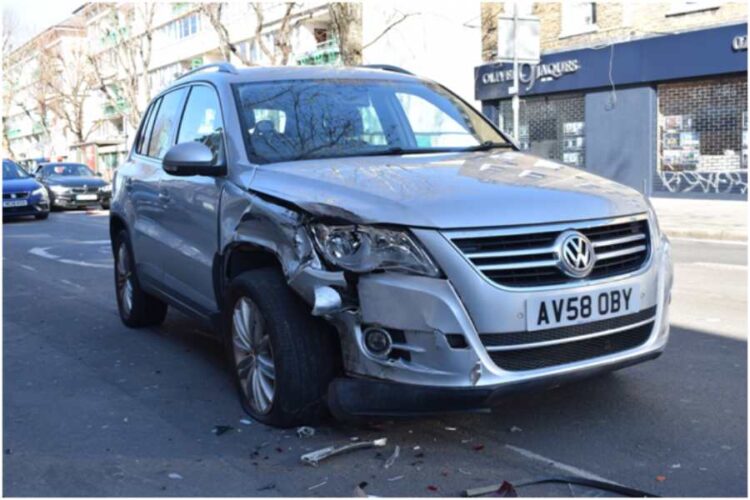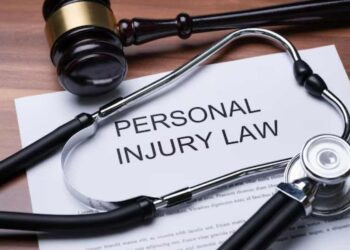Car accident personal injury lawsuits often focus on the physical injuries suffered at the hands of careless drivers. Victims dealing with back problems and whiplash from being rear-ended or recovering from surgical procedures can show a clear link between the accident and their suffering. But what if the suffering is mental rather than physical? Can you still claim compensation without serious physical injuries? The short answer is yes. Just as there are different types of personal injury law, there are various ways psychological trauma is recognized by the courts, and the best car accident attorneys in Council Bluffs can get you the compensation you deserve. Here’s how.
Psychological Pain And Suffering Following Car Accidents
Psychological trauma comes in many forms and it’s easy for them to manifest after a car accident. In some cases, the effects will be acute and almost instantaneous due to the harrowing nature of the experience. In others, the effects may come on gradually and in ways that aren’t so noticeable to other people. Any car accident victim must know that either situation is as valid as the other. You don’t have to go through a complete mental breakdown to be entitled to compensation. You are still able to claim if you’re scraping by through life and dealing with more low-key issues. The point is that you’re suffering due to someone else’s negligence or incompetence.
Let’s start with the more severe cases and some of the issues that can arise there. PTSD is a serious mental health condition that develops as a response to serious trauma. The physical effects can be debilitating and have a profound effect on our ability to function in everyday life. Those who aren’t diagnosed with PTSD may instead find themselves struggling with nightmares and severe anxiety. Nightmares could see victims reliving the experience or versions of it each night, making it nearly impossible to move on. Anxiety can worsen when victims go back onto the road or in a vehicle. This could trigger panic attacks that make the mere thought of driving again terrifying. Remember that an accident doesn’t have to have been a car wreck or involve serious physical injuries to provoke these responses. Any response to trauma is valid.
Another serious issue that car accident victims may deal with is survivor guilt. For example, you may have been the passenger in a car involved in a head-on collision where the driver of your car didn’t survive. Or, you may have been the one who was hit by driving, and your car ended up hitting a pedestrian in a chain reaction. Those deaths aren’t your fault. They are the fault of the other driver. You can claim for the psychological trauma involved and also help with evidence for a wrongful death lawsuit.
As for the less serious cases of psychological suffering, you can claim compensation if you’re dealing with depression, insomnia, or other emotional issues. The latter may not sound so bad on paper, but it all depends on the domino effect. An inability to express emotion or find happiness can have a devasting impact on your relationships with your partner, children, and friends. It can also impact your ability to work.
Economic Damages And Mental Trauma
There are two forms of compensation in personal injury cases. There are the non-economic damages for pain and suffering, which relate to damage in the aftermath of the injuries suffered. Then, there are the economic damages, which are the financial costs incurred because of the actions of the other driver. You can claim these damages for mental trauma if there was a direct financial repercussion.
For example, you can present medical bills and invoices for care received related to your mental health or any additional physical treatment. This could be the costs of medical assessments, hospital visits, and ongoing therapy bills. There’s also the chance to claim based on the costs of medical aids or medication bought to ease your suffering. On top of all that, you can also claim for a loss of earnings from an inability to work. If your PTSD or depression is so incapacitating that you can’t go back to your job, you can get help for that.
Providing Evidence Of Mental Trauma After Car Accidents
The only way you can be sure of getting this financial compensation for all the different types of personal injury law is to prove that you’re dealing with these experiences. Proving mental anguish isn’t as straightforward as physical injuries. With physical injuries, you’ll have clear medical records detailing every injury and the treatment provided for them. You can also file photographic evidence as visual proof. There is no visual proof of PTSD or depression. You can still use the same medical records and evidence from crime scenes to prove the other driver was at fault.
From there, you’re left focusing on pain journals and testimonies from other people. This could be a statement from a therapist explaining your condition and its effects. You can also get statements from family members about the impact of your mental health on your work, personal relationships, and daily experiences. It won’t be easy, but you can find a skilled car crash attorney in Council Bluffs who can help make it manageable. They will help you talk to the right people, compile the right evidence, and present the case for you to minimize stress.
Let Experienced Car Accident Attorneys Ease Your Suffering
Embarking on a legal battle with the driver that caused your mental health issues is a difficult and scary step to take. It’s understandable if you feel it’s beyond you right now. However, think about the positives that can come from fighting the case and winning. You could be vindicated as a court rules in your favor and sees that the pain and suffering endured is real and impactful. You could get enough compensation to help ease the additional financial stress you are under and support you until you’re ready to work again. Talk to a car accident lawyer about your case, let them guide you through the process, and see what you can gain from the experience.










